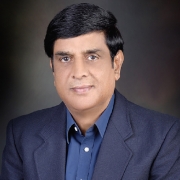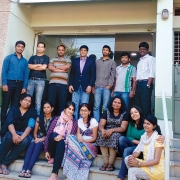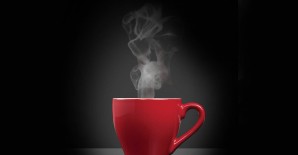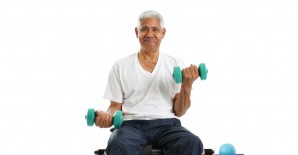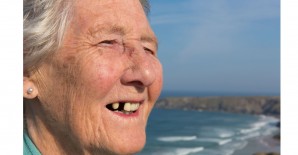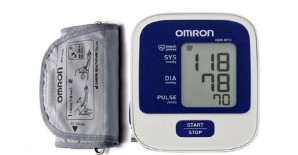
Health
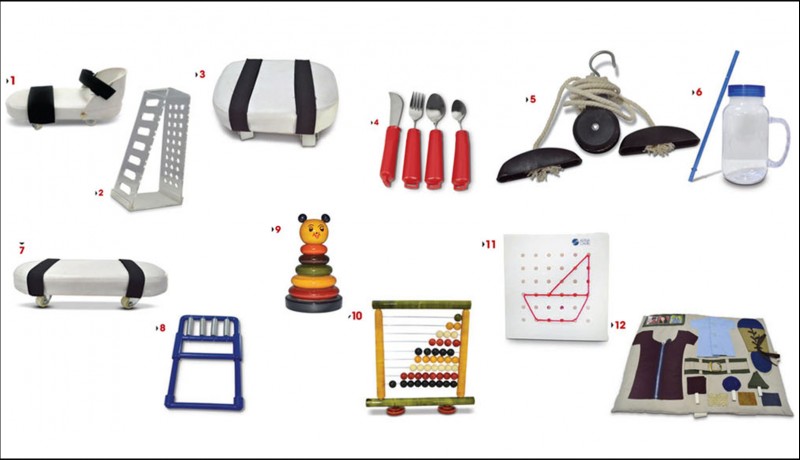
ApnaCare brings home a comprehensive healthcare solution for silvers
When 67 year-old Srinivas in Hyderabad finishes his breakfast, the alarm on his phone goes off, reminding him it’s time to pop a pill. For many silvers like him who live alone, Smart Pill Reminder is a useful app that nudges them to take their medication on time. Not only does the app keep a record of medication taken, it sends an automatic message to the neighbourhood pharmacy when it’s time for a refill.
Developed by ApnaCare, a first-of-its-kind comprehensive healthcare solution for silvers in India, the Smart Pill app is one of the many technological aides that make the lives of silvers easy. The genesis of ApnaCare, though, lies in a traumatic episode. Ramu Muthangi, a technologist based in the US, had a difficult time finding care and support for his father in India. Though Muthangi lost his father, he realised the vacuum of a proper home healthcare solution in India. “I also noticed that the talks with my friends in the US inevitably veered towards our parents, their health concerns and our inability to do anything,” he admits. “ApnaCare was launched in 2013 to bridge that gap.”
With a presence in Bengaluru, Chennai, Hyderabad, Mumbai and Pune, ApnaCare’s bouquet of services include post-hospitalisation and rehab care, physiotherapy, doctor visits, diagnostics, medical tools and assistance in identifying suitable living spaces for silvers. “We are also trying to create awareness that recovery is possible,” says Muthangi. “In the US, rehabilitation is a must after health issues, and rehabilitation specialists are called occupational therapists.”
“Simple tools such as a red bowl or an album with old pictures can play a vital role in slowing down decline in an Alzheimer’s or dementia patient,” he continues, emphasising that all products developed by ApnaCare are validated by research. “For instance, it has been established by clinical research that the colour red triggers hunger and thirst and that an Alzheimer’s patient will eat 25 per cent more if served in a red bowl.”
The latest to join the ranks of simple rehab and recovery tools is a laser cane with visual clues and audio clips for patients suffering from Parkinson’s. “While walking, these patients can freeze suddenly,” he explains. “They need visual clues like lines or audio instructions such as a marching band to keep them going.”
In an interview with Srirekha Pillai, the CEO and founder of ApnaCare draws attention to the need to rehabilitate silvers after neurological disorders. Excerpts:
BACKGROUND
I graduated from IIT Kanpur and during the early days of my career with the Indian Navy, I had the opportunity to work on some really good projects. The equipment I designed for ship communications is still in use. Thereafter, I went to the US and worked at ADC Telecommunications. I was with their R&D wing and was part of the team that wrote the standards for the cable modems you see today. At Polycom, where I went next, I was the technical programme director of their next-generation audio conferencing equipment. Later, I joined Honeywell Aerospace.
THE STORY
My father, who used to be very independent, fell in the bathroom and broke his femur bone. The surgery was successful and he was fine. But I was appalled to discover that there was no good postoperative care in India. We arranged someone to take care of him. However, there was no professional help available. He was not taken on walks or motivated to move his muscles, as a result of which his whole body became stiff. In your silver years, you should get back on your feet quickly, or you degenerate pretty fast. He became totally dependent on others even for his daily chores. I used to visit him quite often. The doctor told us that all his vital values were good, but he had lost the will to live. When I went back after one of my trips, I got a call saying he was no more.
THE GENESIS
I realised I wasn’t alone. Many of my friends were similarly worried about their ageing parents. That is when I hit upon the idea of providing comprehensive healthcare for silvers. My daughter Bhavana, who was studying at Harvard Business School, was excited about it. We did a dipstick survey and found many takers. The real push came when we won a prize at the Biz Plan contest at Harvard Business School in the Social Venture Track.
In 2013, I came to India and studied the system for six months. I toured all the metros and found good service providers. We had our own criteria for checking their quality. We did a background check on how they selected people, trained and tracked them. We also tied up with hospitals and clinics such as Apollo, Fortis and Vasan Eye Care-for basic health checks. Our clients are entitled to a 10 per cent discount at these clinics. We kickstarted our services in Bengaluru, then spread to Chennai and Hyderabad. With over 70 doctors on call, Bengaluru is now completely covered. We have nurses on call for wound dressings and administering injections and IVs. We also provide companion care for personal hygiene.
TECHNOLOGICAL EDGE
We use technology to connect people who are seeking care for their elderly loved ones with the best of service providers. We have a good backend system and apps that show whether doctor/nursing/therapist visits were done, while listing the procedures carried out.
We also employ cloud telephony. No matter which number the client calls—Bengaluru, Chennai, Hyderabad and US—the call comes to us. We have nurses who attend the call, record the medical history of the patient and allot them the required care. We look for the right person for each patient. For instance, those with peg tubes, tracheal tubes and tubes in the nose and catheter need specialised care.
PSYCHOLOGICAL ANGLE
According to statistics from WHO, over 50 per cent of silvers above the age of 60 are prone to depression. This is more so in India than in the Western countries where people lead a highly independent life right from the beginning. I feel silvers here need someone to talk to who can empathise with them. There is this gentleman in Bengaluru we take care of. One of his kids is in the US, while the other is in Australia. Though his kids have been calling, he doesn’t want to go there. We have someone to take care of him. Once a week, our operations manager visits him for feedback. He says he is very happy with the service, but will still come up with a list of complaints so that he can keep talking!
REHABILITATING PATIENTS
Almost 50 per cent of the calls we get pertain to patients with neurological disorders, such as stroke, Parkinson’s, Alzheimer’s, dementia, etc. Having studied what has been done for stroke and dementia patients in the US, UK and Canada, we have come up with solutions that help rehabilitate such patients in India. We have developed a stroke rehab kit, dementia care kit and Parkinson’s care kit. In the case of stroke patients, for instance, good rehabilitation after surgery can improve the chances of recovery. Rehabilitation helps stroke survivors relearn skills that are lost when part of the brain is damaged.
Studies over the past decade have shown that the adult brain can ‘rewire’ itself when damaged in stroke recovery. The ability of the brain to rewire or re-organise itself after injury is called neuroplasticity. Studies have also shown that the adult brain can create new neurons, a phenomenon called ‘neurogenesis’. Rehabilitation involving neuroplasticity principles requires the repetition of the task to be effective. I have learnt all this from Stroke Rehab: A Guide for Patients and Their Caregivers by Karen Murray. There is a 90 per cent chance of recovery from stroke if one follows home rehabilitation regularly.
SAFETY FIRST
We employ people only after a thorough background check, which involves an academic qualification check, address check and police verification. Further, our tracking services record the movement of the caregiver and the services offered.
PATENT PENDING
We have applied for a patent for all our kits. Though some tools are available separately in the market abroad, no one has assembled a kit.
HANDY TOOLS
Stroke rehab kit
The tools focus on reviving movement, balance and coordination for activities such as walking, sitting, eating, dressing and bathing. These include:
- Palm skate: To stimulate weakened palm and wrist
- Leg skate: To develop strength in lower limbs
- Rope and pulley: For those with weak upper body strength
- Finger ladder: For wrist, elbow and shoulder rehabilitation
- Bent spoon: For those with decreased wrist movement
- Water sipper: Spill-proof water sipper with a straw
Parkinson’s care kit
The tools help people with Parkinson’s disease reverse their symptoms and lead an independent life. These include:
- Hand skate: To develop strength in upper limbs
- Double handle cup: Makes it easier for those with limited movement in their hands to handle the cup
- Food bumper: Helps stop food from sliding off the plates to make self-feeding easier
- Foldable walking stick: For extra support while walking; can be carried wherever one goes
- Weighted cuff: For tremor reduction during eating; comes with a Velcro grip and easily fits on wrist
Alzheimer’s and dementia care kit
This set of tools and devices ensure maximum function in daily life, and helps improve cognition, mood and behaviour. These include:
- Tic Tac Toe: Improves hand dexterity in arthritic individuals
- Abacus: Helps Alzheimer’s patients develop a pictorial representation of the problem in the brain
- Lace board game: Improves dexterity, mobility and fine or gross motor skills
- Wooden stacking ring: Enhances hand and eye coordination and improves memory
- GPS tracker: A wearable safety device that helps track, locate and monitor the individual from even a remote location
For more details, visit www.apnacare.in
Featured in Harmony — Celebrate Age Magazine August 2018
you may also like to read
-
Hot tea!
If you enjoy sipping on that steaming hot cup of tea, think twice. New research establishes a link between drinking….
-
Weight and watch
If you have stayed away from lifting weights at the gym, thinking it might not be a good idea for….
-
Toothy truth
Research has established a clear association between cognitive function and tooth loss when cognitive function score was categorised into quintiles…..
-
PRODUCT OF THE MONTH
Automatic Blood Pressure Monitor Measure your blood pressure and pulse rate with no fuss Hypertension, or high blood pressure, could….



